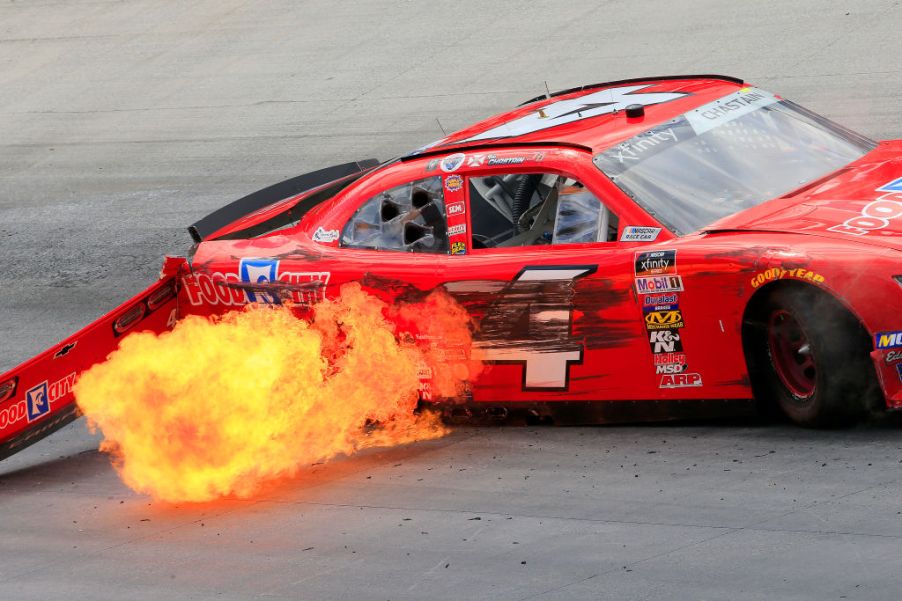
The 10 Ways Your Car Could Catch Fire
Reliability is an extremely important factor when choosing which car to buy. Nobody wants their car to break down let alone catch on fire, so choosing the right make and model is important. What’s also important is understanding just how a car can catch on fire. So here are the 10 ways that it can, according to How Stuff Works.
10. Design flaws
These flaws typically don’t cause the fires on their own, but they can create situations where a fire is very likely. These flaws can range from all sorts of issues with the car, and they’re a major reason why recalls will happen.
9. Poor maintenance
Like design flaws, not maintaining your vehicle well can also make it more likely that your car catches on fire. Poor maintenance will also just make your car more dangerous to drive in general, so maintaining your vehicle properly is extremely important to both the car’s health and to yours.
8. Car crashes
If you’ve watched any movie or TV show, this shouldn’t surprise you. In reality, your car catching on fire after an accident isn’t very likely, as most cars have safety features that may prevent that from happening. However, a big enough crash can still cause your car to catch on fire, no matter how well designed it is.
7. Arson
This is a no-brainer. If somebody wanted to, they could set your car on fire.
6. Hybrid and Electric Vehicle batteries
Any car can catch on fire if its battery gets damaged, but with hybrid and electric vehicles, their batteries are much larger and thus, it’s much more likely that those batteries will get damaged. But like anything safety related, automakers are always improving the safety around their cars’ batteries.
5. Overheating catalytic converters
A car’s exhaust system can get extremely hot, up to 2,000 degrees in fact. However, if your catalytic converter gets damaged or gets even hotter than that, then it’s possible that it’ll ignite the flammable parts of your car and set the rest of it on fire.
4. Overheating engines
Like the exhaust system, a car’s engine can get extremely hot as well. If it gets too hot, it can trigger a chain reaction that will set your car on fire. There are many reasons why an engine can overheat, and some of them are already on this list. For example, design flaws and improper maintenance are reasons why an engine can overheat.
3. Spilled fluids
A lot of the fluids that are in your car will be flammable, and if something goes wrong with where those fluids end up, then they may end up igniting and thus, setting the car on fire. Many of the reasons why this happens are because of things like design flaws of the car, a simple accident, or arson.
2. Electrical system failures
A car’s electrical system is actually the second most common way that cars can catch on fire. That’s because your car’s electrical system can set your car on fire through many different ways, from sparks igniting fluids to the wires creating hydrogen gas that gets ignited and exploding, etc. Electrical system failures are difficult to diagnose, but routine and thorough maintenance checks for loose wires can help prevent them from happening.
1. Fuel system leaks
The leading cause of car fires is when the car’s fuel system leaks. When your fuel system leaks, it could’ve happened for a lot of different reasons, such as improper maintenance or design flaws of the car. How those leaks turn into fires is quite simple, as like with spilled fluids and electrical system failures, your fuel is highly flammable and it can ignite through a lot of different ways. These leaks can happen at any time but fortunately, proper and frequent maintenance of your car can prevent it.



